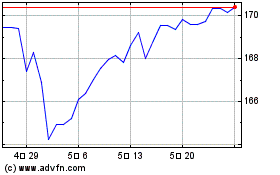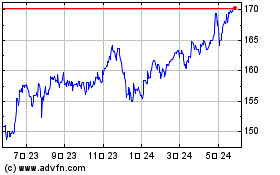Euro Falls Amid French Political Uncertainty
02 12월 2024 - 5:01PM
RTTF2
The euro weakened against other major currencies in the European
session on Monday, as the threat of France's far-right party
collapsing the government caused pressure on European markets.
According to media reports, France's far-right National Rally
(RN) party will likely back a no-confidence motion against the
government in the coming days unless the disputed draft budget
meets her party's demands.
Finance Minister Antoine Armand said the finance bill is vital
for the country and artificial budget deadlines won't be
accepted.
Sentiment was also dented by U.S. President-elect Donald Trump's
threat of 100 percent tariff on BRICS countries if they pursue new
currency alternatives to the U.S. dollar.
Data from S&P Global showed that the Eurozone manufacturing
sector contracted further in November on stronger declines in
factory orders, production, purchasing activity and inventories.
The final HCOB factory Purchasing Managers' Index fell to 45.2 in
November from 46.0 in October. The pace of decline was stronger
than seen on average over the current period of decline.
The German manufacturing sector remained deep in contraction
territory. The headline HCOB final manufacturing PMI held steady at
43.0, which was below the initial estimate of 43.2.
The PMI survey signaled a deepening downturn in the French
manufacturing sector. The factory PMI registered 43.1 in November,
down from 44.5 in October. The flash reading was 43.2.
In other economic news, data from Eurostat showed that the euro
area unemployment rate remained unchanged in October. The jobless
rate came in at seasonally adjusted 6.3 percent, the same as in
September and also matched expectations. The rate was below the 6.6
percent posted in October 2023.
The number of unemployed declined 3,000 from the previous month.
Compared to last year, unemployment was down 411,000.
In the European trading today, the euro fell to nearly a 2-week
low of 0.8270 against the pound and nearly a 2-1/2-month low of
157.59 against the yen, from early highs of 0.8304 and 158.64,
respectively. If the euro extends its downtrend, it is likely to
find support around 0.81 against the pound and 155.00 against the
yen.
The euro slipped to 5-day lows of 0.9289 against the Swiss franc
and 1.0496 against the U.S. dollar, from early highs of 0.9322 and
1.0547, respectively. On the downside, 0.91 against the franc and
1.03 against the greenback are seen as the next support levels for
the euro.
Against Australia, the New Zealand and the Canadian dollars, the
euro dropped to a 6-day low of 1.6159, a 1-week low of 1.7788 and a
5-day low of 1.4736 from early highs of 1.6223, 1.7864 and 1.4785,
respectively. The euro may test support near 1.58 against the
aussie, 1.76 against the kiwi and 1.44 against the loonie.
Looking ahead, U.S. and Canada manufacturing PMI for November
and U.S. construction spending for October are set to be released
in the New York session.
Euro vs Yen (FX:EURJPY)
외환 차트
부터 11월(11) 2024 으로 12월(12) 2024

Euro vs Yen (FX:EURJPY)
외환 차트
부터 12월(12) 2023 으로 12월(12) 2024
